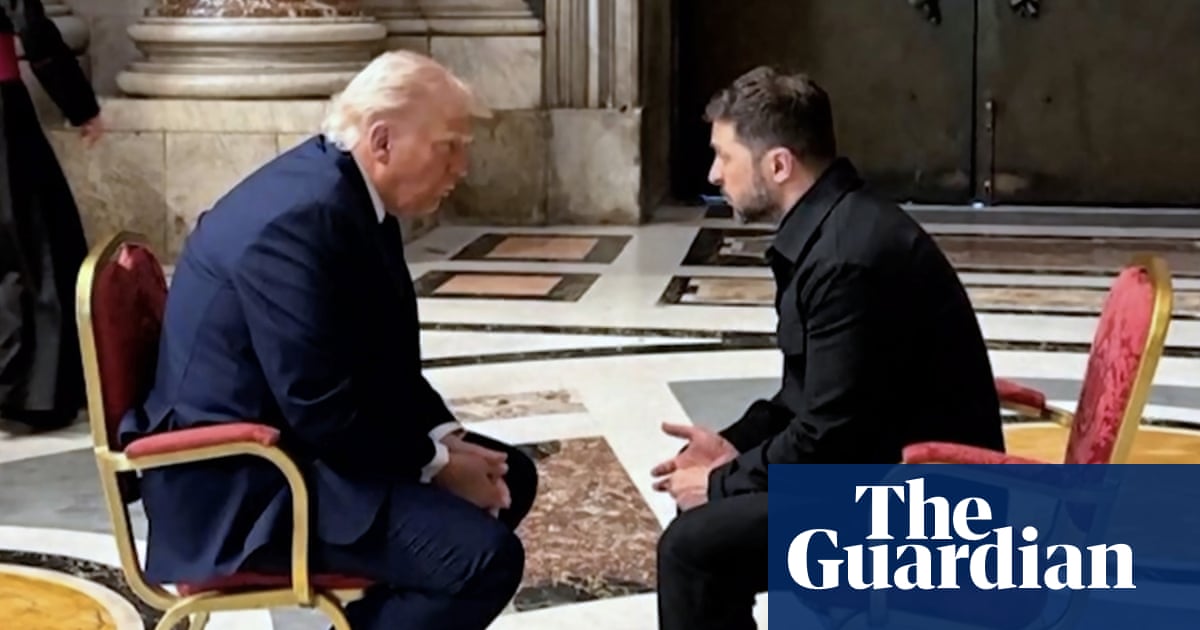There is cautious optimism in Kyiv over the terms of the long-discussed US-Ukraine minerals deal,signed on Wednesday, which appear to be more advantageous for Ukraine than most had expected.
Many details are still to be finalised and will be written into a yet-to-be-signed further technical agreement, suggesting that the long saga over the deal may not be quite over. But Ukrainian analysts have noted that Kyiv has apparently been able to extract some major concessions, despite Donald Trump’s repeated claim thatUkraine“has no cards” to play.
“Ukraine held the line. Despite enormous pressure, every overreaching demand from the other side was dropped. The final deal looks fair,” Tymofiy Mylovanov, president of the Kyiv School of Economics, wrote on X.
Ukraine’s prime minister, Denys Shmyhal, said on Thursday that his country would retain “full control over its subsoil, infrastructure and natural resources”. Notably absent from the final text was the insistence that Ukraine should repay previous military US assistance via the deal, something Trump has previously repeatedly demanded. Volodymyr Zelenskyy had rejected signing something that would obligate “10 generations” of Ukrainians to repay. Future potential military assistance to Ukraine, however, will count as investments.
The signed agreement also makes it clear that its terms will not jeopardise Ukraine’s potential future integration with the EU, and also does not subject Ukraine to US legal jurisdiction. It does not lock Ukraine in to partnering only with the US on projects in future, and guarantees only access to bidding processes for US companies on fair terms.
“There’s no requirement to sell everything to the US, or to channel all investment through the fund. The obligation is to give the fund fair market access to future projects,” wrote Mylovanov.
The original idea of some kind of “rare earths” deal was thought up by Zelenskyy’s team. It was part of a “victory plan” unveiled before the US election last year, with the specific goal of interesting Trump in an economic partnership, amid fears that a potentialTrump administrationwould not be as amenable to a values-based argument to support Ukraine as the Biden administration had been.
However it seemed that the gambit had backfired when, soon after taking office, Trump dispatched the US Treasury secretary, Scott Bessent, to Kyiv with the draft of an agreement that “looked like it had been written on the train”, according to one source. The plan appeared to lock Ukraine into all kinds of obligations, while offering Kyiv nothing in return by way of security guarantees, save the rather thin claim that Washington taking a stake in Ukraine’s economy was itself a kind of security guarantee.
Since then, there have been various attempts to revise and revisit the terms of the deal. In late February, Zelenskyy was meant to sign it duringa meeting in Washington, but after the vice-president, JD Vance, goaded him into an argument in front of the cameras in the Oval Office, Ukraine’s president was kicked out of the White House without signing.
Earlier this month, it transpired that the Ukrainian justice ministry had hired the US law firm Hogan Lovells to advise on the deal, according to filings with the US Foreign Agents Registration Act registry.
The deal will need to be ratified by Ukraine’s parliament, while discussions will continue over the “technical agreement” that also needs to be finalised and signed. The overall agreement is unlikely to have a huge impact in terms of contracts signed as long as fighting between Ukraine and Russia continues, but the Zelenskyy team hope that getting it signed will increased goodwill towards Kyiv in the Trump administration. The US president in recent days has continued to paint Zelenskyyas a bigger obstacleto a peace deal than Vladimir Putin – although he has gradually inched towardscriticism of the Russian leader.
The first rhetorical noises from Washington on the deal were positive. After signing the agreement, Bessent called it the start of a “historic economic partnership” and claimed it showed that the US remained committed to Ukraine as an ally.
“This agreement signals clearly to Russia that the Trump administration is committed to a peace process centred on a free, sovereign, and prosperous Ukraine over the long term,” said Bessent.
